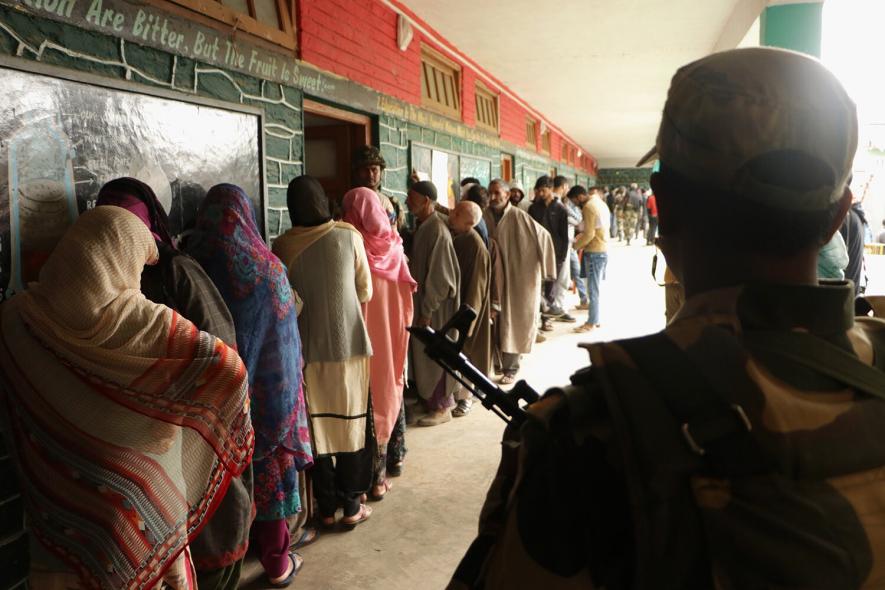
Since the revocation of Article 370 that granted special status to Jammu Kashmir, a whooping increase of 11 lakh voters has been registered who can now vote during the assembly elections in the erstwhile state.
As per the official reports available with the news agency—Kashmir News Observer (KNO), in 2019, the total number of voters was approximately 76 lakh, with 39.45 lakh men and 36.38 lakh women.
By January 1, 2024, in the voter revision campaign initiated in 2023, the number of voters surged to more than 86 lakh, indicating an increase of around 11 lakh voters in Jammu and Kashmir since 2019.
A senior government official divulging the details told KNO that following the removal of Article 370, there has been heightened enthusiasm among the populace regarding elections in Jammu Kashmir.
“A significant number of people are stepping forward to participate in the electoral process. Post the removal of Article 370, for the first time, individuals from various communities such as West Pakistani Refugees, Valmiki, and Gorkha communities have attained citizenship,” says the official.
Reports inform that the completion of delimitation of Assembly and Lok Sabha seats in May 2022, due to the State Reorganization Act, halted the process of voter registration from 2019.
When the voter registration campaign commenced three years later in September 2022, there was a notable surge in applicants, exceeding 11 lakh. However, 3.5 lakh applications were rejected at the same time as per the reports.
Consequently, there was a significant increase of 7.72 lakh voters in Jammu Kashmir, with the total number reaching more than 83 lakh as per the November 2022 voter list.
“The surge in voter numbers can be attributed to the newfound enthusiasm resulting from various communities acquiring citizenship rights post the abrogation of Article 370. Previously, a considerable portion of the population, including West Pakistani refugees, Valmiki, and Gorkha communities, were disenfranchised in state-related elections such as assembly, panchayat, and municipal body polls,” the official said.
Earlier, separate lists were maintained for Assembly and Lok Sabha elections. Despite having voting rights in Lok Sabha elections, a section of the population refrained from participating due to the lack of voting rights in the Legislative Assembly.
To address this, a separate campaign was launched to enroll Kashmiri Pandits scattered across the country as voters. Special teams were deployed to Jammu, Mumbai, Pune, Bangalore, Ahmedabad, Delhi, and Chandigarh, visiting households to include individuals who had turned 18 and were previously excluded from the voter list.
Furthermore, the last delimitation exercise in Jammu and Kashmir took place in 1995, resulting in 12 districts and 58 tehsils.
Presently, the erstwhile state comprises 20 districts and 270 tehsils, with the most recent delimitation based on the 2011 census. Under the leadership of retired Supreme Court judge Ranjana Prakash Desai, the Delimitation Commission increased the number of assembly seats from 83 to 90—(KNO)




